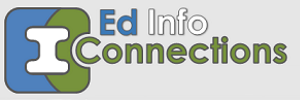A recent post by Joe Siedlecki and his colleagues of the Michael and Susan Dell Foundation (MSDF) makes a strong case for getting educators the skills to use data appropriately in their work. Few organizations, with the exception of the Bill and Melinda Gates Foundation have invested so much in promoting data cultures and developing data tools.
Many educational reformers like the MSDF want to move the field of education forward in terms of becoming more information oriented and less intuitive. They want educators, especially teachers to use the data. And, there is research to support them. A recent special issue by the MIT Sloan Management Review showed that high-performing organizations often relied on data while low performers often relied on intuition.
At the same time, many who promote educational data use and often wonder why educators fail to use data or do so reluctantly. They wonder what will it take for teachers and other educators to willingly embrace the information age and use data in their work. They ask what skills educators need (statistics, assessment literacy, etc.) to be able to be effective. When we look at corporations and how they use information, what staff characteristics do we see for those who use data and information? We see certain technical competencies such as the ability to manage analytics and interpret the data. We also see that those who use data are knowledge workers rather than the lowest level workers.
This raises fundamental questions about teachers. Are they knowledge workers or are they labor? Do the policies, including some of the models of teacher evaluation, that are being promoted helping to construct teaching as an independent professional that uses information to make decisions or is their work increasingly systematized and regulated? When we measure their productivity and when we rate them according to specific instructional approaches then their position is more like a laborer. When they are provided with incentives and tools then they are more like a knowledge worker. It seems that in addition to tools and skills that some educators may need a clearer definition of their organizational role(s).

Leave a Reply